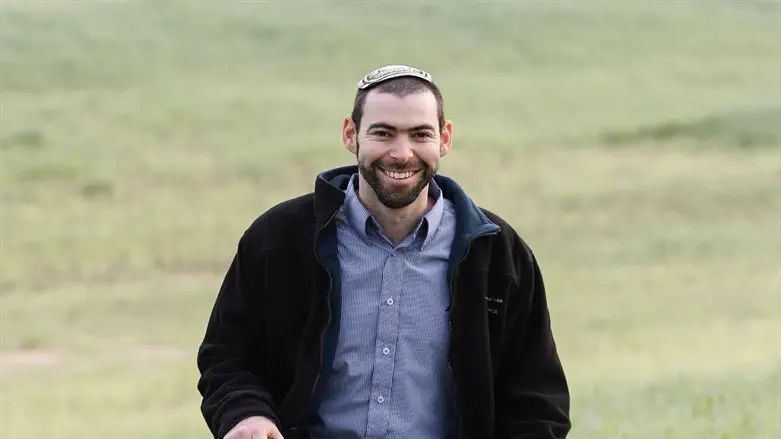
In Parshat Ki Tavo, we read about a unique ceremony that takes place when the Nation of Israel enters the Land of Israel. Half of the tribes are to stand on Mount Gerizim - the mountain of blessings--the other half stand on Mount Eival - the mountain of curses. The Levites and the Holy Ark are in between the two, down in the valley. During this event, the whole nation (re)accepts upon itself the Torah and the Mitzvot.
What exactly is the purpose of this event and what is the goal the Torah is trying to achieve?
Seemingly, this is a "remake" of our acceptance of the Torah at Mount Sinai, only this time it's in Eretz Yisrael. The Magid Mesharim (Parshat Re'eh) explains that Hashem wanted that the same way we "saw the voices" at Mount Sinai, likewise we will recreate it and "see the bracha (blessing) and klala (curse) at Mount Gerizim and Ebal.
If we look into the details of this ceremony we can see many similarities to the giving of the Torah (matan Torah) but since this is the "Matan Torah of Eretz Yisrael" we recognize some interesting similarities and differences that have to do with the new reality of the Nation entering of the Land of Israel.
1. On both occasions, the event takes place around a mountain.
2. In both, there is writing of the laws and the Torah script.
3. In both, we were required to build a Mizbeach (altar) and offer sacrifices on it. (By the way, until today this Mizbeach exists on Mount Ebal in the Shomron, near Shechem).
4. In both events, Am Yisrael accepts the Torah.
5. At Mount Sinai, we received ten commandments, and at Mount Gerizim and Ebal we heard eleven oaths of blessings and curses (some of them remind us of the ten commandments).
6. At Mount Sinai, there were voices (Shemot, 19:19):
"וַֽיְהִי֙ ק֣וֹל הַשֹּׁפָ֔ר הוֹלֵ֖ךְ וְחָזֵ֣ק מְאֹ֑ד משֶׁ֣ה יְדַבֵּ֔ר וְהָֽאֱלֹהִ֖ים יַֽעֲנֶ֥נּוּ בְקֽוֹל"
(The sound of the shofar grew increasingly stronger; Moses would speak and God would answer him with a voice)
and here (Devarim 27:14), we also have the same phrase used, "la'anot" and "kol". (The Gemara in Sota (33a) actually makes a comparison between the two voices):
"וְעָנ֣וּ הַֽלְוִיִּ֗ם וְאָֽמְר֛וּ אֶל־כָּל־אִ֥ישׁ יִשְׂרָאֵ֖ל ק֥וֹל רָֽם"
(The Levites shall speak up, saying to every individual of Israel, in a loud voice)
So those were some similarities, but what exactly are the differences?
Let's look a bit closer and analyze them:
At Mount Sinai, the voices came from above, the Shamayim, the heavens. Moshe Rabeinu himself goes up to the mountain and sky. Am Yisrael stays below at the base of the mountain and is not allowed to approach and climb up the mountain. Here in Parshat Ki Tavo, Am Yisrael is standing above, on top of the mountain. They themselves are the main characters in the event. The Ark and the Levites are below. The voice is actually coming from below up to where they are standing.
At Mount Sinai, the holy script is engraved miraculously on the Luchot Habrit, (tablets of the covenant) and here the Torah is written on the holy stones of Eretz yisrael. At Mount Sinai, the Torah was forced upon us "Kayfiyat Har Kegigit", without fully having free will, unlike here, where Am Yisrael accepts upon themselves the oath and the Torah, and are required to respond - "Amen".
Clearly it is the same Torah. But there are some important differences that are suitable for the new reality of the nation entering Eretz Yisrael.
This is "Torat Eretz Yisrael"- The Torah of the Land of Israel.
Am Yisrael became the center of the events. The responsibility moves to their hands. Our actions have great consequences to blessing and punishments, in our natural reality.
In Eretz Yisrael, the stones can be sanctified, and have the Torah written on them. This shows that the natural physical reality can express holiness and Torah.
In Eretz Yisrael, the Torah is not forced upon us, but we must accept it nevertheless, and choose to receive it. We are the ones responsible for executing its values in real life. That is the meaning of our answering - "Amen". That is what will bring the blessing and peace to the land.
And all the people shall say, 'Amen!'